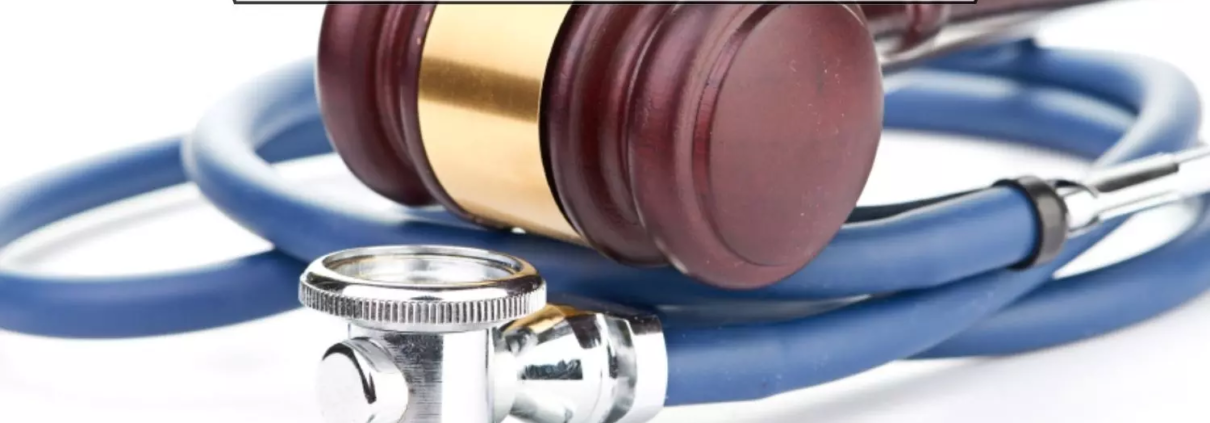Consumer Court clears Lucknow hospital, doctor of medical negligence in bedsore death case

New Delhi: The National Consumer Disputes Redressal Commission (NCDRC) recently exonerated a Lucknow-based hospital and doctor from charges of medical negligence during the treatment of a 75-year-old patient.
Earlier, the State Consumer Court had held the hospital and its management guilty for faulty nursing care resulting in the development of bedsores in the patient. However, while considering the hospital’s appeal against the State Commission’s order, the Apex Consumer Court observed that the patient, who had diabetes for the past several years and hypertension for 40 years, was in a critical health condition and was admitted after having suffered three strokes, cardiac problems.
“Thus, the bedsores were not the only antecedent or direct cause of death even though the bedsores might have added to the old age, anaemia, the paralytic attacks and the spinal injuries as well as the diabetes and hypertension of the patient. The main cause of death appears to be a account of his weak health conditions that might have initiated the bedsores or even aggravated it later on. These aspects have not been dealt with by the State Commission and the impugned Order to the extent, it indicts the Opposite Party Nos.1 & 2 (hospital and doctor) cannot be sustained,” concluded the NCDRC bench.
The history of the case goes back to 2014, when the 75-year-old patient was admitted to the treating hospital for treatment on account of multiple problems, including his advanced age. After being admitted on 30.09.2014, the patient was discharged on 09.10.2014.
It was alleged by the complainants that the treating hospital provided inappropriate treatment, resulting in the mismanagement of the bedsores treatment. Due to this, infections developed, and the condition of the patient worsened to an extent that his subsequent hospitalisation in other hospitals could not improve the situation, and ultimately, he collapsed.
Meanwhile, the hospital and the doctor claimed that despite clear instructions to come back within 5 days, the patient chose voluntarily to stay back home, resulting in aggravation of the infections. Allegedly, the patient went to a different hospital, namely Sushrat Institute of Plastic Surgery (SIPS), where he stayed for two days and thereafter left against medical advice. Later, he was admitted to Sahara Hospital on 20.10.2014, where he stayed for 21 days and expired on 09.11.2014.
Even though the complainants (legal heirs of the deceased) impleaded all three hospitals and their doctors, after contest, the complaint was partly allowed, holding only the first treating hospital liable for medical negligence on the ground that the bedsores that had developed during the admission of the patient in the said hospital had contributed towards the cause of death of the patient.
Accordingly, it was concluded that the nursing staff and the management of the treating hospital were liable to pay damages for such improper nursing care of the patient. It was held that the bedsores were so intense that they were found to be in stage-4, having reached the bones, and according to the State Consumer Court, they had developed during the period when the patient was admitted to the treating hospital between 30.08.2014 and 08.09.2014. The State Commission also concluded that even thereafter, a compounder of the same hospital had been deployed to carry out the dressing of the bedsores and therefore this negligence pertaining to the aggravated bedsores was attributable to the Appellant hospital.
Challenging this, the treating hospital approached the NCDRC bench, and the hospital’s counsel relied on the medical records to argue that the bedsores were clearly treated effectively and no material had been brought on record to indicate any deficiency or negligence either in the nursing or in the administration of medicines, as well as regular management of the bedsores. It was therefore submitted that the bedsores were treated, but the patient after discharge on 09.10.2014 did not return as advised.
Relying on the Nurses Daily Record, the counsel for the hospital urged that there was no shortfall in any care of the patient who had developed these problems on account of his extremely old age and his prolonged ailments as a diabetic patient for the past 25 years and with three attacks of paralysis and other ailments as a result of which the patient was a very weak outcome that was treated appropriately. The patient was also suffering from cervical compression for the last two years and chronic kidney disease for the past six months. The counsel for the hospital also submitted that no negligence was found when the matter was examined by the Uttar Pradesh Medical Council.
While considering the matter, the NCDRC bench noted that the treatment and the continuation sheet clearly indicated the administration of antibiotics and medicines, even though the bedsores had been noticed.
“Thus, the bedsores upon being noticed for the first time on 06.10.2014, the treatment immediately seems to have commenced. The cervical problem of the patient is also evident and his movements appear to have been restricted and his general condition was very poor. Indications of pneumonia and other infections are also recorded in the doctor’s sheets. The situation continued till 03.10.2014 when he suffered a septic shock and was also ventilated. The continuous attendance by doctor on account of the acute status of the patient is also evident. The first indication of a bedsore is shown in the treatment sheet dated 06.10.2014 and the dressing for bedsores was also indicated. The treatment has been followed and stand supported with the nurses note sheets which is also on record. It is correct that the bedsores have been noted from 06.10.2014 onwards and the patient was discharged on 09.10.2014 which records that there is a bedsore and advice was given with regard to its management in the Discharge Summary dated 09.10.2014,” observed the Apex Consumer Court.
The Commission noted that, admittedly, after the discharge, the patient did not visit the hospital as advised after 5 days. Instead, he was admitted on 18.10.2014 in SIPS, where he stayed for two days till 20.10.2014 and got himself relieved against medical advice and then came to be admitted at the Sahara Hospital, where he stayed from 20.10.2014 till his death on 09.11.2014. In the admission sheet of Sahara Hospital, it was shown that there were bedsores, and the cause of death also indicated that, apart from septic shock and other symptoms, bedsores were also one of the reasons.
“What is noticeable is that the patient was in the Opposite Party No.1 Hospital upto 9th October only. It is correct that he had bedsores but we find from the note-sheets as well as the treatment-chart that from 6th October onwards the bedsores were being treated, turning the patient from one side to the other, carrying out dressings and also administering Faropenem and Linezolid medicines. The appropriate treatment was, therefore, being carried out but the patient went back home on 09.10.2014 and did not report back to the hospital within five days as advised. He stayed for over almost 9 days. During this period he is stated to have received home treatment where some compounder is also stated to have attended to him. There is no evidence to indicate that the compounder had been deputed by the Opposite Party No.1 hospital or the Opposite Party No.2 doctor nor is there any other evidence to indicate as to what form of dressing and care was being taken of the patient at home from 09.10.2014 to 18.10.2014. Consequently, this period was clearly spent as per the own choice of the patient and applying the principles of res ipsa loquitur it can be gathered that the bedsores might have worsened during this period. We may point out that there is no evidence that the bedsores had reached stage-IV by 09.10.2014 at the hospital,” the Commission observed at this outset.
“Apart from this, the patient did not return back to the Opposite Party No.1 hospital and instead went to SIPS where he was for two days from 18.10.2014 to 20.10.2014. As noted above, no negligence has been fixed against the said hospital even though it was arrayed as an Opposite Party in the Complaint. The Complainant has not filed any Appeal questioning the correctness of the impugned Order absolving the SIPS Hospital. In the circumstances, if the bedsores continued at SIPS Hospital as well, the same cannot be attributed towards the negligence of the Opposite Party Nos.1 & 2 or the worsening of the bedsores to StageIV,” it further noted.
“In this background, the finding recorded by the State Commission that the condition of bedsores had developed due to improper hygiene and lack of nursing care at *** (treating Hospital) leading to Stage-IV of the bedsores does not seem to be based on an appropriate estimation of the circumstances of the case as discussed above. The Opposite Party Nos.1 & 2 (treating hospital and doctor) cannot, therefore, be made a scapegoat for any liability for holding that the bedsores had worsened at the Opposite Party No.1 Hospital,” concluded the Commission.
Further taking note of the report by the UP Medical Council Ethics Committee, the Apex Consumer Court held,
“The Ethics Committee did not find Dr. *** or his hospital namely **** Hospital to be negligent in the nursing of the patient, but referred to the consent documents not being in Order for extending ventilator support of the patient. Apart from this, there is no other complaint referred to by the Medical Council. The warning of comprehensive treatment is to SIPS Hospital and not to the Appellant…The conclusion drawn by the State Commission, therefore, about the bedsores having taken a bad shape on account of deficient nursing at the Opposite Party No.1 Hospital is not exactly borne out from the record.”
With this observation, the Apex Consumer Court exonerated the hospital.
To view the order, click on the link below:
https://medicaldialogues.in/pdf_upload/ncdrc30092025-303433.pdf
Also Read: Consumer Court junks Rs 2 crore medical negligence claim against AIIMS New Delhi, Doctors


